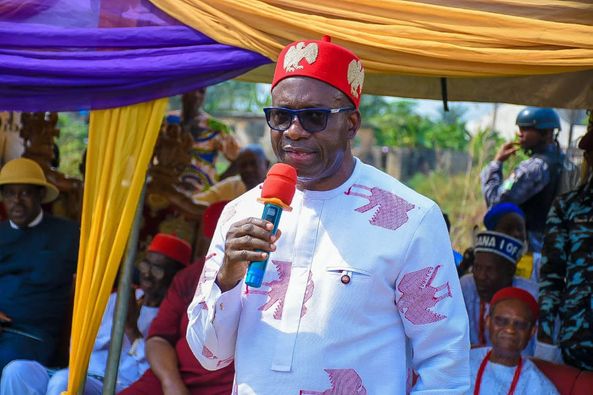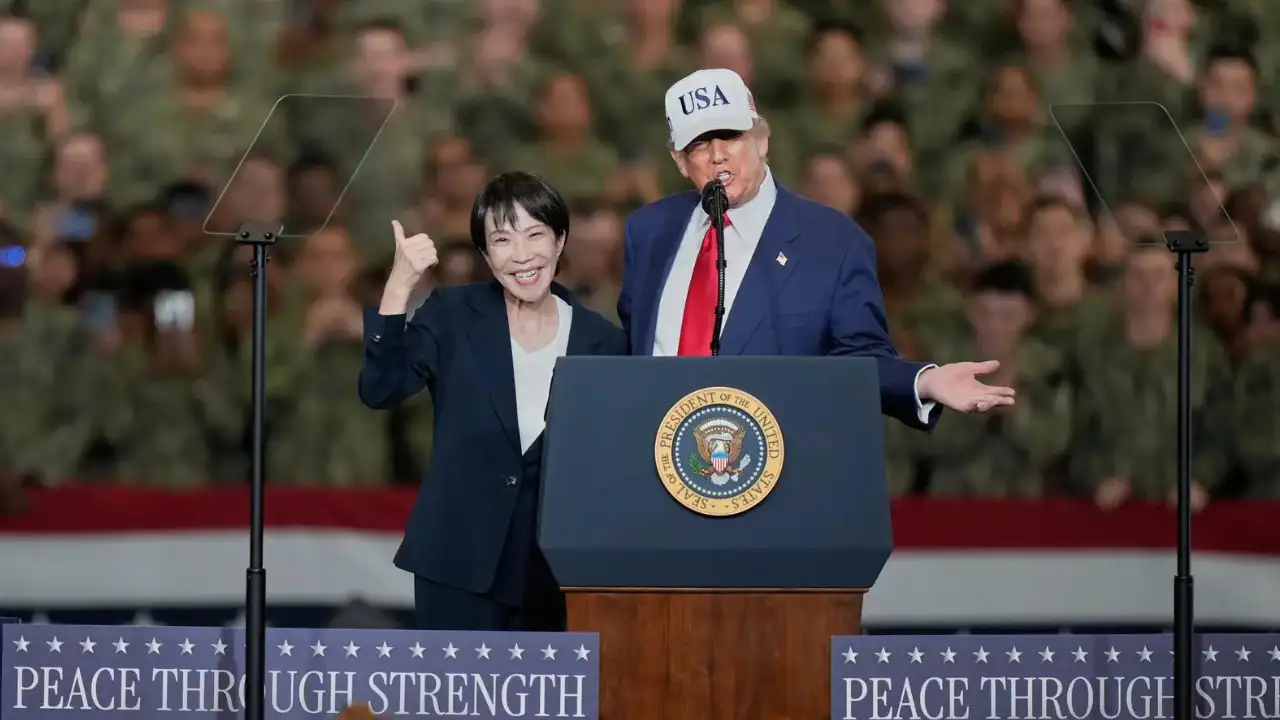Copyright scmp

Long-simmering debates in Washington about the benefits of increased investment from China were revived in recent weeks after Beijing reportedly pushed US President Donald Trump’s administration to roll back national security restrictions on Chinese deals in the US. But despite signs of high-level political warming to the idea, analysts say the path forward for Chinese firms remains steep given federal and state restrictions and the realities of congressional and local politics. China’s security rollback request came up during September trade talks in Madrid, with Beijing dangling the prospect of a large investment package. No such pledge immediately came out of the Trump-Xi summit last week. After the talks, Trump said China felt very “strongly” about investing in the US. “They have investments and they will invest,” he told reporters. In September, US Trade Representative Jamieson Greer told Fox Business that in Madrid the two sides had discussed “the investment climate in the United States for Chinese companies”. China’s senior trade negotiator, Li Chenggang, told reporters the US had “expressed its willingness to move together with China … when it comes to reducing barriers to investment”. Beijing has repeatedly urged Washington to create a non-discriminatory environment for Chinese companies, which in recent years have faced growing restrictions over concerns ranging from data security to military espionage. In a September phone call, Chinese President Xi Jinping himself urged Trump to create “open” and “fair” conditions for Chinese investors. The two leaders are expected to meet again next year. The discussions so far, meanwhile, set up a possible departure from a long-standing status quo: Beijing is testing whether Washington’s rhetoric on reshoring can coexist with its years-long attempt to put up walls against Chinese businesses, including those in strategic sectors. Is Trump changing how Chinese can invest? “The space for Chinese investment in the US is a complicated one … but it’s shifting,” said Jeremy Wallace, a professor of China studies at the Johns Hopkins School of Advanced International Studies. “Trump is particularly interested in investment in America, making things in America,” Wallace continued, noting that there was “a little bit more willingness” than under former president Joe Biden to accept Chinese investment, including in green tech sectors where China was ahead. “Rather than it being a national security issue for the United States, where we’re worried about our intellectual property being stolen by Chinese firms, the story is much more about Chinese firms bringing technology to the US to hopefully allow it to diffuse and help build up supply chains in these advanced sectors.” Trump himself has fuelled talk of this shift. On the 2024 campaign trail, he indicated multiple times that he would prefer Chinese carmakers to set up factories in the US than in Mexico. In his second term, he has purged many of his firmest China hawks, including David Feith, the author of the “America First Investment Policy” presidential memo that called for a crackdown on Chinese investments. Trump’s proposed TikTok joint venture, too, represents what a former senior government official calls a “new approach to thinking about Chinese investment and cooperation between Chinese and US entities”. Policies ‘getting ahead of politics’ But Chinese firms face an uphill battle, especially given that many of the cleantech sectors where they excel – and hope to expand outside China – are the same ones targeted by federal legislation and policy. “The policies are getting ahead of the politics,” said Kate Logan, director of the China Climate Hub at the Asia Society Policy Institute, noting that while Trump had provided a soft political opening, firms were confronted with an “increasingly complex” and cumbersome regulatory environment. Restrictions from recent years include the 2021 Uygur Forced Labour Prevention Act, which presumes any goods made in Xinjiang involve forced labour and bars their import, and a 2024 rule effectively prohibiting Chinese navigation and communications hardware or software in cars – both major hurdles for joint ventures or factories that rely on Chinese inputs. The Committee on Foreign Investment in the US (CFIUS) has been at the heart of the constraints on Chinese acquisitions and other investments over the past decade. Congress expanded the Treasury Department-led panel’s powers in 2018, and since then it has blocked or forced the sale of a range of Chinese-linked investments – from a cryptocurrency mining company operating near a US military base to the gay dating app Grindr – on national security grounds. The regulatory environment was complicated earlier this year when Congress strengthened “foreign entity of concern” rules that make it harder for firms tied to Chinese companies to access Biden-era tax credits for green energy projects. Political fears persist State-level pressure against Chinese investment has also accelerated in the past decade. In recent years, civil society groups such as State Armor and State Shield have formed to advance policies that discourage acceptance of Chinese investment and other forms of engagement. “China is at war with America, and America has finally woken up to that,” said Joe Gebbia, the founder of State Shield, adding that he planned to engage all 50 US states to help “protect” them against China. Last week, the state of Michigan publicly retracted its subsidies for a planned factory by Chinese battery maker Gotion – a move that effectively marked the death of the project, years after lawmakers and local groups first raised concerns about the company’s Chinese ownership. Interest is uneven across the country. Some states, such as Oregon, have recently sent representatives to China expressing interest in Chinese investment, according to Zhou Mi, a senior researcher at the Chinese Academy of International Trade and Economic Cooperation. But others, like Florida and Texas, have introduced new laws that make investment harder, including ones that would restrict Chinese citizens from buying property. Asked at an event last month whether he would support Chinese investment in the US, John Moolenaar, chairman of the House Select Committee on the Chinese Communist Party, pointed to his opposition to Gotion. He said that while he normally welcomed new jobs in his district, he was uneasy about backing a company whose corporate documents referenced ties to the Communist Party. Addressing the same topic ahead of last week’s Trump-Xi summit, Raja Krishnamoorthi, the top Democrat on the committee, stressed safeguarding national security. CFIUS “doesn’t work as well as it should right now”, he said, adding that there could be legislation to “beef” it up and make it more “efficient and effective”. Ted Fertik of the BlueGreen Alliance, an advocacy group for labour unions and environmental organisations, said another obstacle facing Chinese firms was the tendency for local actors to link trade and foreign direct investment debates. “For many stakeholders, you can’t make that separation. A lot of their concerns about Chinese FDI trace back to their concerns about how China conducts itself in the system of global trade,” Fertik said. And that added to local pressures against investment. “Among union workers in sectors hit hard by Chinese imports, the sense of conflict has been very high for 15 or 20 years, and it hasn’t really receded,” he continued. Chinese investors show mixed appetite The Chinese side, too, shows hesitation to enter the US market, with only a fraction of current outbound investment going to the US. After peaking at a record US$57 billion in 2016, Chinese investment in the US has dwindled, coming in at US$2.7 billion for the first three quarters of 2025, according to data on completed deals compiled by the Rhodium Group. Beijing has at times made it harder for its companies to invest abroad, including earlier this year when it reportedly tightened approvals for firms seeking to set up or expand operations in the US. In recent weeks, the messaging has been more encouraging. Speaking at an event after the leaders’ summit, Qiu Wenxing, a minister of the Chinese embassy in Washington, said Beijing believed Chinese investment in the US was “mutually beneficial”, adding that he hoped Trump’s positive signalling “could be translated into concrete actions”. Chinese firms are also showing “mixed” appetites, according to Cameron Johnson of Shanghai-based consulting firm Tidalwave Solutions, noting that many were waiting for others to be first movers. There was no easy path forward, he said. Joint ventures could help Chinese companies navigate the complex US system with the help of an American company, but those were subject to CFIUS review, while greenfield projects – those built from scratch – required major upfront capital. Firms also worried about exposing their technology and weak demand as Chinese-linked products lost access to US tax credits, Johnson said. “There’s interest from sectors ranging from specialty housewares to green tech,” he said. “But there’s a lot of uncertainty of how those kinds of agreements would actually work. “There are enough horror stories. Chinese companies don’t really want to spend a whole bunch of money, either on consultants or lawyers. For now they’d rather opt for markets elsewhere, like Southeast Asia.” Still, some firms, particularly in clean energy, may need the US market. “They’re all really hurting because there’s a very intense competitive pressure and their margins are very low at home … all things being equal, those Chinese firms would like to be here, and the Chinese government would most likely let them come,” said Michael Davidson, a senior associate in Chinese business and economics at the Centre for Strategic and International Studies. Analysts note that some clean energy firms, including solar maker Longi and electric vehicle giant BYD, were already in the US – either through joint ventures or by maintaining a limited presence while waiting for conditions to improve. “It’s those firms that already have a foothold in the US that will be able to navigate some of those restrictions going forward,” Logan said. A framework to say ‘yes’ Rush Doshi, a senior fellow for Asia at the Council on Foreign Relations and a former director for China on Biden’s National Security Council, said Chinese investment in the US would only work with a regulatory structure that could both protect security interests and enable engagement. “We have CFIUS, which says no; we have no structure to say yes. “I’d like to see America – and I think maybe President Trump and this Congress can do it – come up with a kind of Chinese-style whitelist approach to Chinese investment that would allow us to benefit from their great advantages in manufacturing and indigenise some of them in the US,” Doshi said. Analysts broadly agree that Trump could be the catalyst to reset the investment relationship. “If it’s going to happen, Trump could sort of make it happen,” said Evan Medeiros, a senior fellow at Georgetown University. Even the recently purged Feith agrees. In an op-ed arguing against Chinese investment last week, he concluded that “the decision belongs to Trump. Only his name was on the ballot.”



